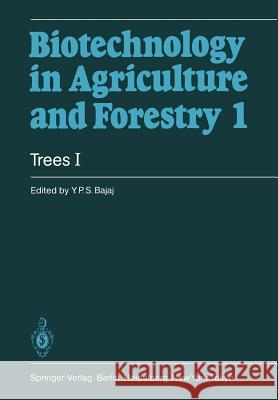Trees I » książka
Trees I
ISBN-13: 9783642705786 / Angielski / Miękka / 2011 / 515 str.
Biotechnology has come to a stage where, by replacing some of the age old practices of breeding, it can produce novel and improved plants and animals that can better serve human beings and their purposes. The techniques of cellular and subcellular engineering, such as gene splicing and recombinant DNA, cloning, hybridomas and monoclonal anti bodies, production of human insulin, protein engineering, industrial fermentation, artificial insemination, cryopreservation and ovum trans fer, plant tissue culture and somatic hybridization, nitrogen fixation, phytomass production for biofuels etc have advanced greatly in the past decade, due to the availability of better equipment and the consolida tion of knowledge. Product orientation has removed biotechnology from the area of pure academic interest to one of utility where the final product is a spur to action. Businesses have started pouring money into projects, which has aided greatly in improving equipment, information exchange, and arousing the interest and imagination of the public. The common goal of science, industry and the public opens wide vistas and great hopes for biotechnology. The business of biotechnology addresses itself to issues of factory farming, technology transfer, joint ventures, international cooperation and to specific topics as well as the produc tion of diagnostic kits. Industry is particularly concerned with the phar maceutical field and microbial biotechnology from which profitable return can accrue. Commercial interests have led to better management practices and systematisation."











